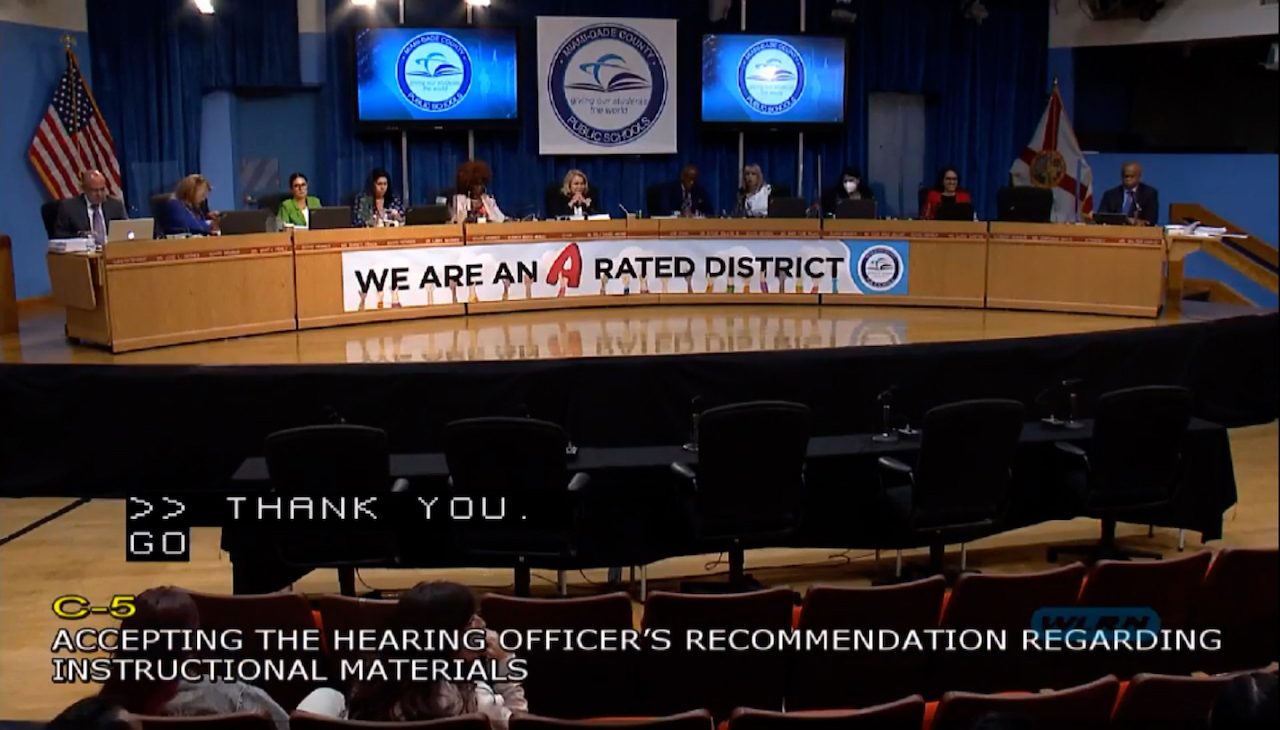
Miami-Dade County School Board reverses decision on sex-ed books it rejected… again
On July 20, the Miami-Dade County School Board rejected a set of new sex-education books that had been agreed upon three months prior. On Thursday, July 28, the school board went back and reversed that decision with a passing vote of 5-4. The July 20 vote also ended in a 5-4 passage.
The rejection of the books initially came as a surprise, as the school board staff as well as an independent hearing officer had recommended the books. The same school board had approved the same books back in April of this year.
Chairwoman Perla Tabares Hantman called the meeting on Thursday asking for a revote. After saying ‘no’ the previous week, Tabares Hantman switched to a ‘yes’ in the new vote.
"I must make sure that our district is in compliance with state standards and curriculum requirements,” she said, speaking on the vote.
Lubby Navarro, a board member, kept her stance in the new vote and voted against the acceptance of the new books. She cited that the public was not given enough time in advance that the issue was going to be brought up again for another vote.
"The ink is still wet on last week's decision,” she said.
The school board cited concerns that rejecting the curriculum would leave schools out of agreement with the state requirements. The initial rejection would have left the schools and the curriculum without textbooks, which are required by state law. The middle and high school textbooks cover a variety of topics that include pregnancy prevention, sexuality, and sexually-transmitted infections, according to some of the desciptions in the books.
CONTENIDO RELACIONADO
However, some outspoken parents reject the new books as a concept, saying that the content of the textbooks were in violation of the controversial “Don’t Say Gay” Florida state law, passed earlier this year. The law bans certain aspects of the curriculum surrounding sexual orientation and gender identity. In reversing the decision, many believe the issue itself was politicized, clouding judgment on those who opposed and rejected the books.
The textbooks titled, Comprehensive Health Skills, have prompted a wave of opposition from parents and other opposition alike. As a result of complaints from some parents, the board asked district officials to draw up a specific curriculum that shows parents what lessons will be taught with a clause to allow parents to pull their students out of the sex education program. This comes at a significant time in the state’s history, as the ongoing battle of what can be taught in schools continues.
Some of the opposition include director of the Miami-Dade chapter of County Citizens Defending Freedom Alex Serrano.
“Much of the content is not age appropriate, usurps parental rights and is scientifically inaccurate and not factual,” he said.
Board Vice Chair Dr. Steve Gallon III, who voted to approve the books, reviewed the content himself, and said the opposition "deduced [the materials] to a sexual conversation." The books have lessons about many important aspects of human life including hygiene, AIDS, how to report abuse, human trafficking, and HIV implications, among other lessons.
In a statement on the issue, Gallon said: "No matter where you come from, from Florida City to County Line Road, children and young people need to understand this information…We say education is power. We cannot render our children powerless by denying a segment of our school district access."
In a phone interview with the New York Times, Lucia Baez-Geller, a board member who voted to approve the textbooks said, “We sighed a moment of relief, because what transpired last week was essentially a banning of books and a banning of knowledge. That’s a dangerous precedent for our students.”










DEJE UN COMENTARIO:
¡Únete a la discusión! Deja un comentario.